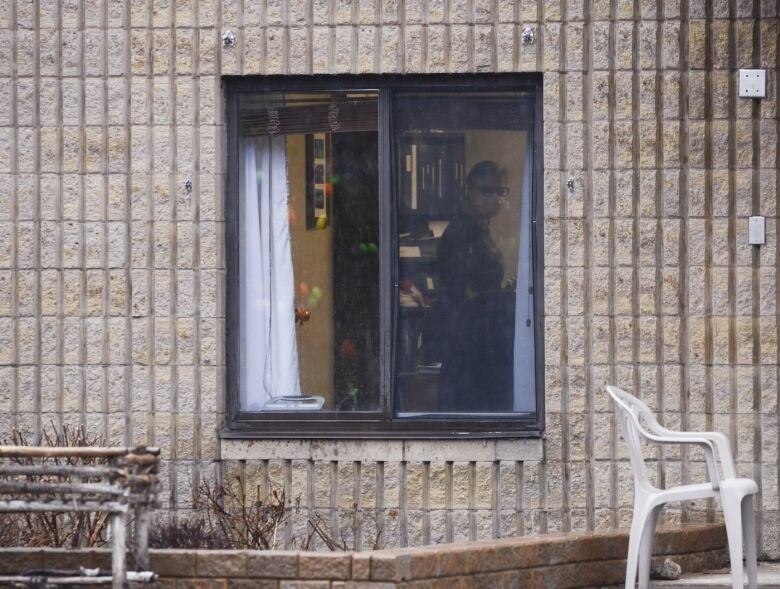New Ontario nursing home law violates Charter, advocates allege in lawsuit
Province says bill led to 'significant improvement' in LTC wait list, hospital discharges

A new Ontario law that allows hospitals to fine discharged patients $400 a day if they do not move into a nursing home not of their choosing violates the Charter of Rights and Freedoms, advocates allege in a lawsuit filed Wednesday.
The Ontario Health Coalition and the Advocacy Centre for the Elderly said the new law,the More Beds, Better Care Act, also known as Bill 7, strips away several rights of older patients.
"Bill 7 singles out a particular cohort of older, ill and very vulnerable patients to be deprived of their right to informed consent about where they will live and the health care they receive," the organizations said in the suit.
The government introduced and quickly passed Bill 7 last fall, allowing hospital placement co-ordinators to accept a spot in a long-term care home and share their health information without a patient's approval.
Doctors and nurses determine if a patient is well enough to be discharged out of the hospital, which is when they are designated to need an "alternate level of care."
Then a hospital placementco-ordinator can determine if a patient is eligible to be moved into a nursing home, can pick a home, send personal health information to a home and authorize admission to a home all without the consent of these patients.

Patients have no right to review or appeal the decisions made by the hospital, the organizations say.
The law does not allow hospitals to physically remove patients.
There are about 5,700 so-called ALC patients in hospitals across Ontario, but only about a third of those patients have been designated to go to a long-term care home.
The law also allows patients to be sent to nursing homes up to 70 kilometres from their preferred spot in southern Ontario and up to 150 kilometres away in northern Ontario.
Organizations allege bill punishes seniors
The attorney general's office declined to comment, saying it would be inappropriate with the case before the court.
"There's a lot of pressure on people in hospital to be moved into homes that they don't want," said Jane Meadus, a lawyer with the Advocacy Centre for the Elderly who fights for the rights of those in long-term care homes, hospitals, and psychiatric facilities.
"These homes are often far away and they often are physically substandard homes."
The suit alleges the new law violates two sections of the Charter. They argue it infringes on an individual's right to life,
liberty and security under section seven of the Charter.
The bill deprives patients of their right to privacy "by allowing any placement coordinator or clinician to access and share an ALC's personal health information with any number of (long-term care) homes to which admission is being sought and with other care providers as well," the suit alleges.

The organizations also argue the law violates section 15 of the Charter that guarantees the right of equality and protects against discrimination.
The organizations say the law unfairly punishes those 65 and older.
"They are being deprived of rights that every other hospital patient, and every other resident in Ontario for that matter, to consent to where they live, to consent to the treatment and care they're going to receive," said Steven Shrybman, a lawyer who is working on the case for the advocacy groups.
"They alone are being singled out to be deprived of those rights simply because they're old and ill and require care."
The organizations want the court to declare some provisions of the bill unconstitutional and invalidated.
Province says bill led to more transitions from hospital to LTC
In an email to CBC News, spokespersonJake Rosemansaidin the seven months since Bill 7 has been in effect, the Ministry of Long-Term Care has seen "significant improvement" in transitioning patients out of hospitals.
Roseman saidthe province saw over 7,600 patients transition from hospitals into LTC homes an 18 per cent increase compared withthe same time period last year. Additionally, Roseman said, it saw a 18per cent reduction in the alternate level care to long-term care wait list.The ministry said earlier that it saw a 33 per cent reduction, but later corrected that figure to 18 per cent.
"Our changes bring us in line with other provinces, which have had similar policies in place for decades,"Rosemanwrote.
"We want to provide Ontarians with the right care in the right place, and this policy is helping discharged ALC patients find the right level of care for their needs."
With files from CBC News












_(720p).jpg)


 OFFICIAL HD MUSIC VIDEO.jpg)
.jpg)



























































































